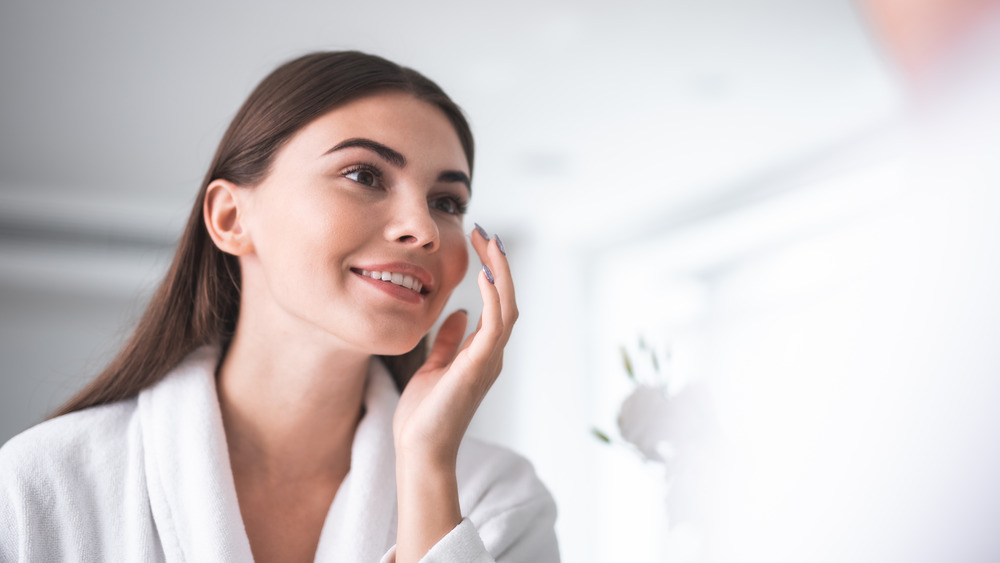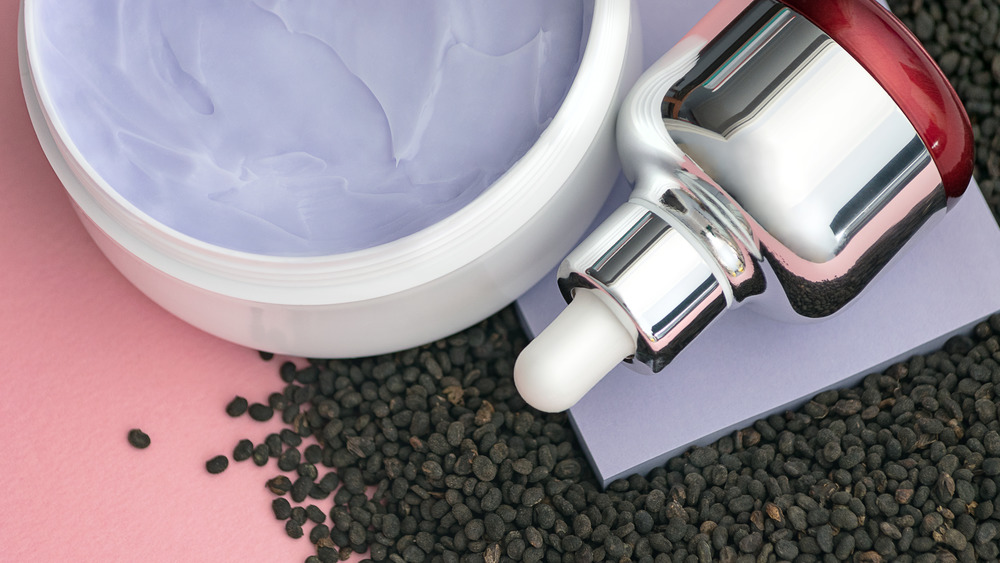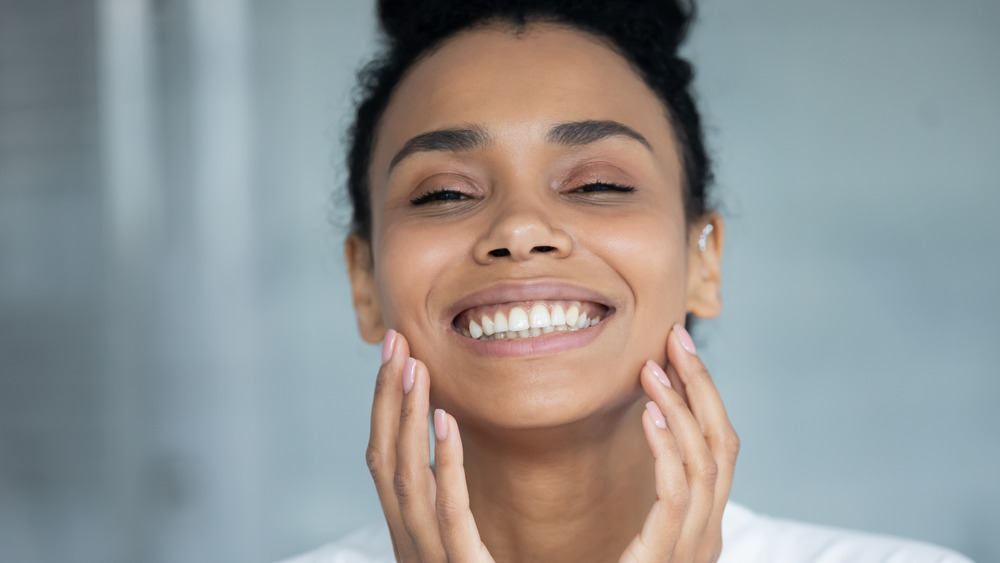Is Bakuchiol Really As Effective As Retinols In Improving Your Skin?
In our quest for the fountain of youth over the decades — no, over the past centuries — a plethora of beauty and skincare products and ingredients have made their rotation through the markets, claiming to reverse signs of aging. One molecule which has stood the test of time is vitamin A, or retinol, and its associated derivatives known as retinoids (via Aesthetic Surgery Journal).
Retinol and retinoids have been incorporated into prescription and over-the-counter products for a long time now and they have been proven to be an effective preventive and therapeutic intervention in reducing and slowing signs of aging (via British Journal of Dermatology). Topical retinoids have demonstrated their ability to combat the signs of aging by increasing collagen production, inhibiting the breakdown of collagen, decreasing inflammation within skin layers, and decreasing hyperpigmentation or "dark spots," commonly caused by years of sun damage.
While retinols are effective, they are known to cause unpleasant side effects, which are sometimes enough to make people stop using them. Common side effects of topical retinols include redness of the skin, skin peeling, itchy skin, stinging and burning after application, general skin sensitivity, and photosensitivity.
That's where bakuchiol comes in.
What is bakuchiol?
If you're wondering what bakuchiol is, you're not alone. In recent years, it has become an increasingly promising natural alternative to retinol. Derived from the Psoralea corylifolia plant, bakuchiol has antioxidant and anti-inflammatory properties, amongst others. Dr. Gretchen Frieling, a board-certified dermatologist, tells Elle, "Both (retinols and bakuchiol) boost collagen and elastin production and reduce photoaging like fine lines and wrinkles...Studies have also shown bakuchiol's abilities to reduce acne by fighting inflammation, hyperpigmentation, and roughness."
Although retinol and bakuchiol are structurally different, studies have shown that bakuchiol can be used as an effective retinol alternative, inducing highly similar gene expression in human skin as retinol. The perk of using bakuchiol as opposed to retinols is that you can avoid the harsh side effects of retinols. Studies found that people who used bakuchiol reported significantly less adverse skin effects, more often avoiding harsh skin irritation, skin peeling, and no evidence of photosensitivity.
Bakuchiol is an effective retinol alternative
Priscilla Tsai, CEO and founder of the skincare brand Cocokind, spoke to Health Digest exclusively about incorporating bakuchiol into their product line. "When formulating a mask that would help with rejuvenating the skin, we wanted to ensure that the ingredients were effective yet gentle! Bakuchiol is known as a natural retinol alternative, which helps to reduce the appearance of dark spots and discoloration. We wanted an ingredient that has all the power of retinol, but in a natural and gentle form that potentially had less of the negative side effects."
Tsai goes on to mention that bakuchiol, although gaining popularity more recently in the western world, has actually "been a staple in traditional Chinese and Ayurvedic medicine for centuries." Bakuchiol is finding its way into more and more products on the market, as the benefits are very promising.
While studies are still being conducted, the current data and evidence does indeed suggest bakuchiol to be an effective ingredient in fighting the signs of aging and promoting healthy skin. So in addition to wearing sunscreen every day, hydrating adequately, and practicing good skin hygiene, try a bakuchiol-containing product for yourself and see a difference in those pesky lines and dark spots which may have been plaguing you for some time.



